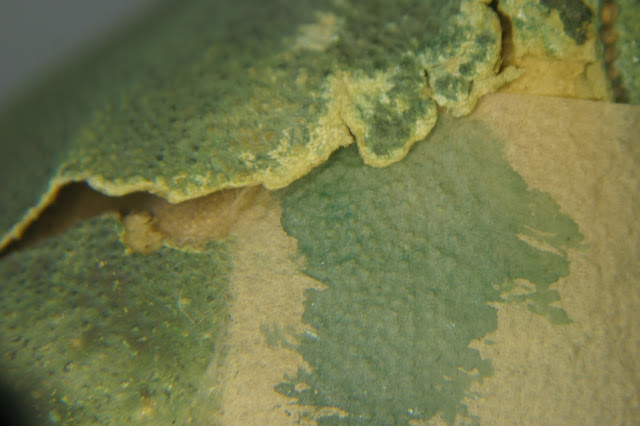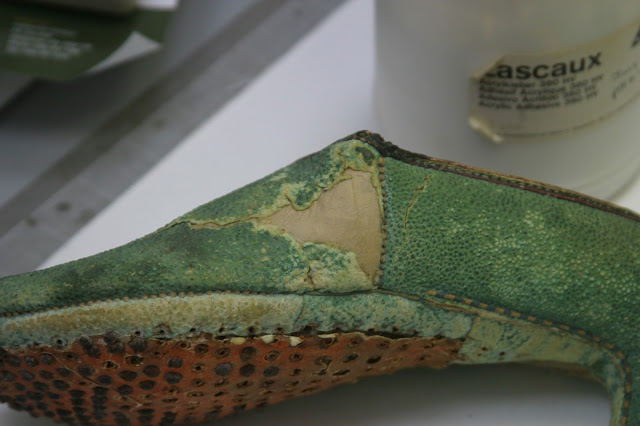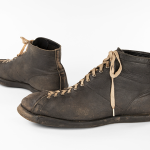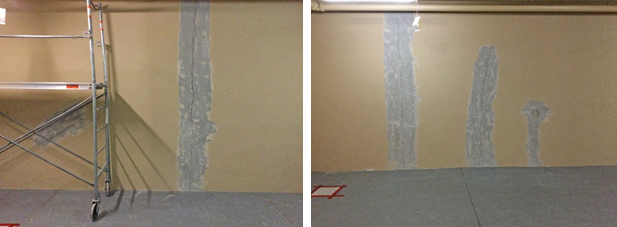This is a rare pair of shagreen leather riding shoes originating from 16th Century Persia. When they were acquired by the BSM in 2006 a large piece of leather was missing from one of the shoes. As well, both shoes had short tears on the quarters (the sides) and the vamps (the front upper sections).

Shagreen was created by using the skin from the hind quarters of a horse, donkey or onager (wild ass). The skin was cleaned by removing the hair and flesh and skived to produce a thinner material. Then it was washed and placed on a stretcher frame. Goosefoot seeds, a member of the amaranth family, were pressed into the dampened skin. Once the skin had dried, the seeds were knocked off and the pimply surface they created was smoothed with a knife. The skin was washed again, causing the impressions to swell, treated with an alkaline solution and then dyed.
In order to stabilize these shoes for display, a similar technique was used to create infills that would not be visually distracting. To replace the losses, pieces of thick Japanese paper were toned with acrylic paints to match the colour of the surrounding shagreen. Each patch was moistened with distilled water, then mustard seeds, with their hulls intact, were pressed into the paper. The fills were sandwiched between two layers of thin foam sheeting and weighted until dry.
 |
| Checking the faux shagreen for colour and texture. |
 |
| Building up the fill with unpainted Japanese paper. |
Unpainted pieces of the same Japanese paper were cut to the size of the holes. They were stacked on top of each other until the height of the hole was achieved as the shagreen is rather thick. The faux shagreen was cut to appropriate size using a template traced onto polyester film. The edges of each fill were feathered by applying a thin moistened brush along the outline of the fill, then tearing along this line. This feathering technique makes the fill blend in more evenly instead of leaving the paper with exacting lines.
These shagreen horseback riding shoes are featured in Standing Tall: The Curious History of Men in Heels available on Google Arts & Culture.



